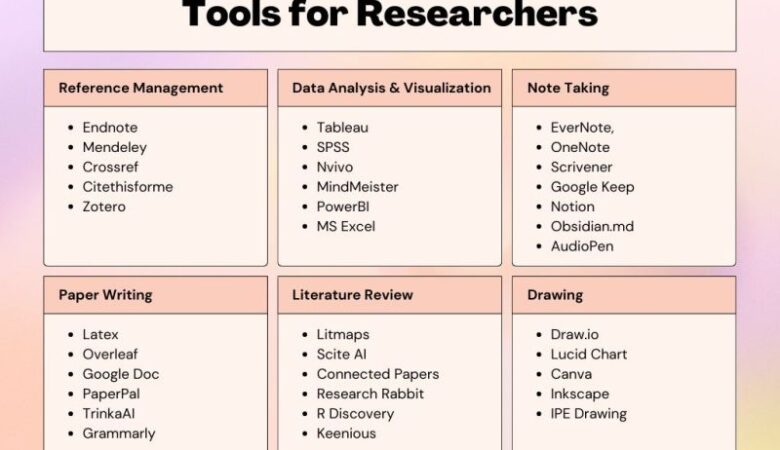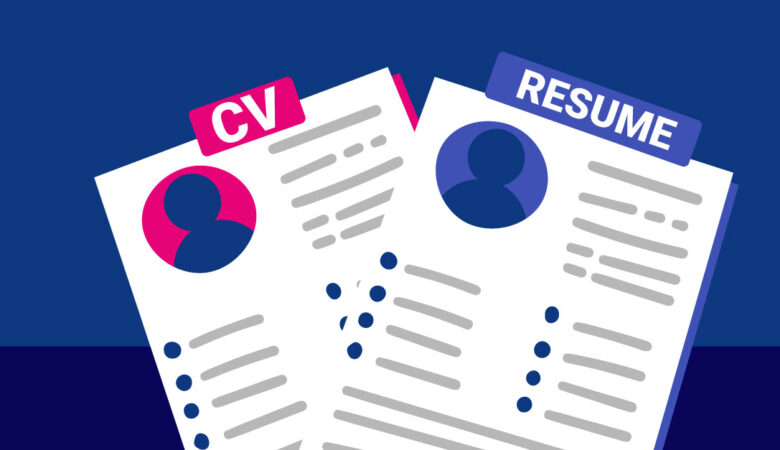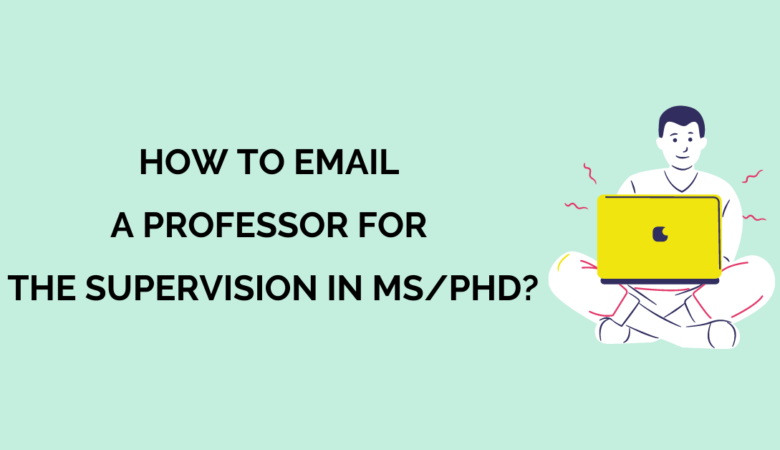France is a top destination for international students, known for its high-quality universities and rich cultural life. In 2023–24, 430,466 foreign students were enrolled in French higher education – about 14% of all students campusfrance.org. This influx of students highlights the importance of understanding visa requirements. A visa (or carte de séjour) is crucial for non-EU students to legally study and stay in France. Even EU/EEA/Swiss students must know the rules: fortunately, EU/EEA/Swiss citizens do not need a visa for any length of study in France campusfrance.org. All other international students do need a visa, either for short visits or long-term study. This guide explains who needs which visa, how to apply, and what to do upon arrival, along with practical tips on health insurance, housing, and budgeting.
Who Needs a French Student Visa
Citizens of the European Union (EU), European Economic Area (EEA) countries and Switzerland enjoy freedom of movement: they can study or do an internship in France without any visa requirementcampusfrance.org. All other international students need a visa. France offers different visas depending on stay duration and purpose:
Short stays (<3 months): Most non-EU students require a Schengen student visa even for short programs under 90 dayscampusfrance.org. This covers summer courses, short language programs or internships.
Very short visits (study visit): Nationals of some countries (e.g. Canada, USA) can enter visa-free for tourism or study up to 90 days, but may still require a short-stay student visa if they study or train.
Entrance exams: Students traveling to France for an official entrance exam or admission interview need a special “étudiant-concours” visacampusfrance.org.
All other international students (those outside the EU/EEA/Swiss and not exempt) will need a long-stay student visa if their program exceeds 3 months. In summary, if you are not an EU/EEA/Swiss citizen and plan to study in France, check whether your stay is short (under 3 months) or long: short-stay and exam visas cover programs under 90 days, while any full-degree program (Bachelor’s, Master’s, etc.) requires a long-stay visa.
Types of French Student Visas
France has several student visa categories. Here are the main types, with typical scenarios:
Schengen Student Visa (Short Stay): This is a short-stay visa for study programs up to 90 days. It functions as a normal Schengen visa. It’s for things like summer language courses, one-month internships, or seminars. Many non-EU nationals must obtain this visa even for short studiescampusfrance.org. Example: An international student attending a 2-month French language course in Paris needs a Schengen student visa.
Student-Exam Visa (“étudiant-concours”): If you must come to France to take an entrance exam or interview for a French institution, use this visacampusfrance.org. It’s a special short-stay visa. Example: A candidate invited to a competitive entrance exam for a French Grande École would apply for this examination visa.
Long-Term Temporary Visa (VLS-T): The Visa Long Séjour Temporaire (VLS-T) is a long-stay visa valid for up to one yearcampusfrance.org. It acts like a residence permit for one year but cannot be renewed. It grants fewer rights (no automatic renewal or work permission beyond 964h) compared to the standard study visa. It’s often used for one-year programs or exchanges. Example: A student on a one-year exchange program or a non-degree preparatory year might receive a VLS-T.
Long-Stay Student Visa (VLS-TS): The Visa Long Séjour valant Titre de Séjour (VLS-TS) is the standard long-term student visacampusfrance.org. It covers studies longer than 3 months (usually 6–12 months initially). It allows you to stay in France for your degree; after arrival you validate it (see below). This visa can be renewed annually by applying for or renewing a residence permit. Example: Enrolling in a three-year Bachelor’s or a two-year Master’s program in France requires a VLS-TS.
Each visa has its conditions: VLS-TS holders must validate the visa within 3 months of arrival (online, see Upon Arrival). VLS-T holders have limited rights and must reapply from abroad if they need to stay longer. The Schengen student visa cannot extend beyond 90 days. Always confirm which visa you need with your French consulate.
How to Apply for a French Student Visa
Applying for a French student visa involves two main phases: securing admission and then the visa process itself. For most non-EU students, the procedure starts with Campus France’s Études en France platform:
Études en France (Campus France) Procedure: If your country is on the Campus France list (around 40+ countries including China, India, USA, etc.koweit.campusfrance.org), you must create an account on Etudes en France. There you apply to French programs and pay a fee. After acceptance, Campus France sends you an “attestation d’acceptation” (acceptance attestation)usa.campusfrance.org. This is your pre-visa admission confirmation. For example, students in India or China will typically follow the CEF steps.koweit.campusfrance.org
Direct Application (Non-CEF Countries): If your country is not in the Études en France list, you usually apply directly to the university or via France’s Parcoursup (for first-year undergrads). Once admitted, you receive an official acceptance letter from the school.
Visa Application (France-Visas): With your acceptance documents (attestation or letter), you create an account on the official France-Visas portal and complete the visa application. The general steps are:
Campus France steps: Submit your program choices and pay the Campus France fee onlineusa.campusfrance.org. After processing, you’ll get an email attesting your admissibility.
Visa form: On France-Visas, fill out the visa form (for short or long stay, depending on your program) and upload required documents.
Schedule appointment: Book an appointment at the nearest French consulate or their visa center (TLS, VFS, etc.). Appointments can fill up quickly, especially in summer. You may apply for a visa up to 90 days before your studies startusa.campusfrance.org. It’s wise to start the Campus France process and collect documents well in advance.
Attend visa interview: Go to your appointment with the printed document checklist. The consular officer will review your file. If approved, your visa is stamped into your passport.
Tip: Even after admission, start early. As Campus France notes, you can apply for a student visa within 90 days of the program startusa.campusfrance.org, but consulate appointments can be booked out weeks ahead.
Documents needed: When preparing your visa application, gather all required documents. While requirements can vary slightly by consulate, the key items include:
Acceptance Letter or Attestation: A formal letter of admission from your French institution or the Campus France acceptance attestation. This proves you’ve been accepted into a specific programusa.campusfrance.org.
Proof of Funds: You must show you have enough money to support yourself. French authorities typically require around €615 per month for living costs (tuition is separate)inde.campusfrance.org. This can be bank statements, scholarship letters, or a certified financial guarantee. For example, a scholarship certificate or a blocked account can serve. Show at least one full year of funding (tuition + living costs)inde.campusfrance.org.
Proof of Return Travel: Especially for short-stay visas, show a round-trip ticket or funds to buy one. At border control, you may be asked for “your return ticket or the means to acquire one by the return date”ieee-icecs2024.org. Bring a travel itinerary or a booked return flight reservation.
Health/Travel Insurance: You need travel medical insurance covering your stay. For Schengen visas, French rules require insurance with at least €30,000 coverage for medical and repatriationieee-icecs2024.org. For long-stay visas, you’ll later register with French social security, but initially carry proof of any valid international coverage.
Proof of Accommodation: Provide evidence of where you’ll live in France. This could be a dorm reservation, a lease for a room/apartment, or a guarantor letter from someone hosting you. Border police expect “proof of accommodation for your whole stay” (hotel bookings or a signed “attestation d’accueil”)ieee-icecs2024.org.
Language Proficiency Proof: If your program is taught in French, show a French language certificate (DELF, DALF, TCF, etc.). If in English, an English exam (TOEFL/IELTS) may be needed. As French law now emphasizes language, official tests (e.g. TCF or DELF) are often requiredfragomen.com. For beginner French programs, at least A1/A2 level may be required.
Other Documents: Valid passport (with at least two blank pages, valid 6+ months beyond your stay), recent photos, visa fee payment, university transcripts, and any additional papers the consulate checklist specifies (civil status documents, CV, motivation letter, etc.). Always follow the France-Visas document list carefully.
Before the visa interview, double-check with the local consulate or TLS Contact website for any specific requirements. Organize your files neatly and keep copies. Having all documents ready shows your preparedness and intent to study.
Upon Arrival in France
After your visa is issued and you arrive in France, there are a few compulsory steps to complete for long-stay students:
Validate your VLS-TS Visa (OFII): If you have a VLS-TS visa, you must register it online within 3 months of arrivalcampusfrance.org. Go to the French immigration site (administration-etrangers-en-france.interieur.gouv.fr) and enter your visa info, arrival date, and address. You’ll pay a “timbre fiscal” (stamp tax) of €50 onlinecampusfrance.org. This validates your visa as a residence permit and registers you with the French immigration office (OFII). After validation, you’ll receive confirmation by email.
OFII Medical Check (if called): In most cases now the OFII process is digital, but OFII may require you to attend an appointment for further formalities. This can include a brief medical exam (general check-up) and an integration interviewwelcometofrance.com. If summoned, attend the local OFII office with your documents. Note that as of 2019 much of this is online, but some students may still be asked to visit.
Pay Administrative Fees: The main fee is the 50€ stamp tax mentioned abovecampusfrance.org. Also, once per year to renew your stay permit (if renewing the visa via a permit) you would normally pay a similar fee. Keep receipts of all payments.
Register at Your University: Most universities hold an official enrollment session in early fall. You’ll present your passport and validated visa/OFII slip to complete your registration. You may also need to pay a small social contribution (CVEC) and show your student ID during enrollment.
These steps ensure you are fully legal in France as a student. Missing OFII validation can lead to fines or issues later. The good news is: once done, you can stay and study for your visa’s full term.
Additional Important Tips
Studying abroad involves more than visas. Here are some key tips to help you settle in:
Health Insurance: Once in France, non-EU students are automatically eligible for French social security (health insurance) from the moment they validate their VLS-TS. You should register with the French health system (sécurité sociale) as soon as possible. Most universities guide students through this process. After registering, you’ll get a social security number and a reimbursement card (Carte Vitale). This covers most healthcare costs. (EU students can simply use their European Health Insurance Card insteadstudent.kedge.edu.) Some students also buy a mutuelle (private top-up insurance) for extra coverage, but this is optionalcampusfrance.org.
Student Housing: France offers various student housing options. The main public option is CROUS dormitories (Cités U), which are university-managed rooms/apartments at subsidized rentsusa.campusfrance.org. These are available to international students, though supply is limited. You apply via the central CROUS platform or through your school’s international officeusa.campusfrance.org. If CROUS housing isn’t available, many students rent privately (studio or shared apartments) or join housing co-ops. Start housing searches early. You can also look for résidences étudiantes privées or shared flatshares.
Private student apartments or dorms provide affordable living close to campus. For example, state-sponsored CROUS residences (cités U) offer subsidized rooms for studentsusa.campusfrance.org.
Opening a French Bank Account: Having a local bank account makes life easier (for rent, stipends, bills). Most banks offer accounts free for students. To open one you generally need your passport, student visa (VLS-TS), proof of enrollment at a French school, and proof of address (a rental contract or proof of residence)student.kedge.edu. You may also need a tax ID from your home country. You can open an account at a traditional bank or an online bank. Compare services and fees first – some banks have special student offers (debit card, online banking, etc.). Remember that receiving scholarship funds or salaries is far easier with a French account.
Transportation Passes: Public transit in France is reliable and offers student discounts. For instance, in Paris (Île-de-France), students under 26 can get the “Imagine R” annual travel pass for unlimited metro/tram/train, costing about €374.40 per year plus a small feeiledefrance-mobilites.fr. Other regions have similar regional cards (like Carte Jeune or local student passes). Even short-term monthly passes often have reduced student fares. If you live near campus, consider biking (Vélib’ in Paris) or walking to save money. Take advantage of multi-ride tickets and student transit deals.
Each student’s situation is unique, so do your own budgeting. For example, if you live in a university city rather than Paris, rent could be much lower. Always explore resources from your specific university for housing and transportation discounts.
Costs and Financial Tips
Beyond tuition, you’ll need to budget for living expenses. Costs can vary widely by city and lifestyle. As a rough guideline:
Accommodation: The biggest cost. In Paris, a one-bedroom can cost over €1,200/monthstudapart.com; in smaller cities like Lille or Bordeaux it might be under €800studapart.com. CROUS dorms or shared flats can be cheaper (sometimes €300–€500/month).
Food and Living: Groceries and eating out can cost €200–€300/month if you’re thrifty. Cook at home often, and use student discounts in cafeterias.
Transportation: A monthly transit pass is €30–€100 depending on city and zones. (Paris ImagineR is ~€374/yeariledefrance-mobilites.fr, ~€31/month.) Don’t forget occasional travel – trains to explore France can be affordable with youth discounts (e.g. Carte Jeune for up to 25% off trains).
Miscellaneous: Expenses like phone/internet (mobile SIM), leisure, books, and small utilities can add €100–€200/month. Universities often offer discounted SIM cards or free internet.
In total, budgeting €1,000–€1,500 per month is reasonable outside Paris; in Paris students often budget closer to €1,500–€1,800/monthstudapart.com. ABS Paris estimates a year’s living costs at about €10,000–€13,000absparis.com (roughly €830–€1,100/month). Plan a buffer for emergencies or upfront costs (like security deposit). Look into scholarships, part-time work (see FAQs) or student loans if needed. Always keep some cash (or a French bank card) for the OFII validation fee (~€50)campusfrance.org and visa application fees.
FAQs
Can I work with a student visa? Yes. In France, all foreign students have the right to work part-time while studyingcampusfrance.org. Non-EU students can work up to 964 hours per year (about 60% of full-time hours)campusfrance.org. This includes on-campus jobs, internships, or part-time work. Income is subject to French social contributions, and the minimum wage (SMIC) applies. You no longer need a separate work permit if you stay under 964 hourscampusfrance.org. Check with your university’s student services for on-campus job openings.
How soon should I apply for the visa? Start early. You can begin the Campus France (Études en France) process as soon as you have an offerusa.campusfrance.org. Officially, you may submit a visa application up to 3 months (90 days) before your program beginsusa.campusfrance.org. In practice, consulates recommend applying as soon as you have your acceptance and visa appointment slots are available, especially before the busy fall intake. In the summer, appointments can fill up quickly, so don’t wait until the last minuteusa.campusfrance.org.
What happens after graduation? If you graduate in France and want to stay, options depend on your nationality and job prospects. Non-EU graduates typically need an employment offer to change to a work visa. Lacking that, they can apply for an Autorisation Provisoire de Séjour (APS) – a 12-month temporary stay permit (non-renewable) to look for work or start a businesssingapour.campusfrance.org. To get the APS, you need at least a Bachelor’s degree from a French institution. During the APS period, you may accept a job that meets salary thresholds. EU/EEA/Swiss graduates can stay and work without any visa formalities; they have the right to seek employment in France indefinitelysingapour.campusfrance.org. In all cases, check the latest rules or ask your school’s international office for guidance on post-graduation visas.
By following these steps and tips, you can navigate the French student visa process smoothly and focus on your studies. Bon courage and bienvenue en France!







Leave a Reply